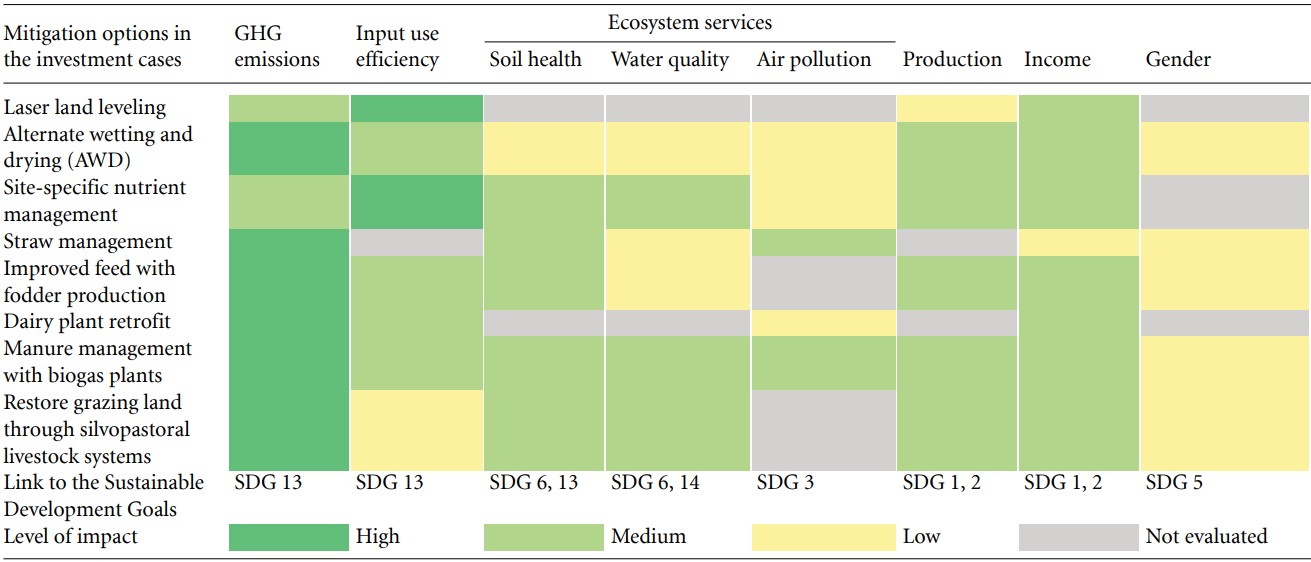December 01, 2021 | Environmental Research Letters |
Introduction: A significant portion of the world's greenhouse gas emissions stems from agriculture, forestry, and land-use changes. To align with emission reduction goals, the agricultural sector must undergo transformation towards low-carbon food systems. This transition necessitates substantial investments in low-emission development options, drawing from global climate finance, domestic budgets, and private sector funding. Innovative financing mechanisms that blend climate finance, agricultural development budgets, and private investments can enhance access to finance for farmers and other stakeholders while delivering environmental, economic, and social benefits. The research consortium formed by CGIAR Research Program of Climate Change, International Maize and Wheat Improvement Center, International Rice Research Institute, International Center for Tropical Agriculture, and UNIQUE forestry and land use reviews investment cases for gaining valuable insights for design and implementation of mitigation strategies in agriculture.
Key findings: Based on the review, the research consortium advocate for leveraging additional public and private capital, fostering stronger connections between financial institutions, farmers, and agribusinesses, and coordinating efforts across diverse stakeholders. They endorse existing agricultural best practices, integration of forestry and agricultural actions to prevent land-use changes, and support for market-driven solutions. Through concerted investment and collaborative action, the agricultural sector can play a pivotal role in mitigating climate change while promoting sustainable development.

Fig. | Sustainability indicators of the selected mitigation options in the investment cases.





